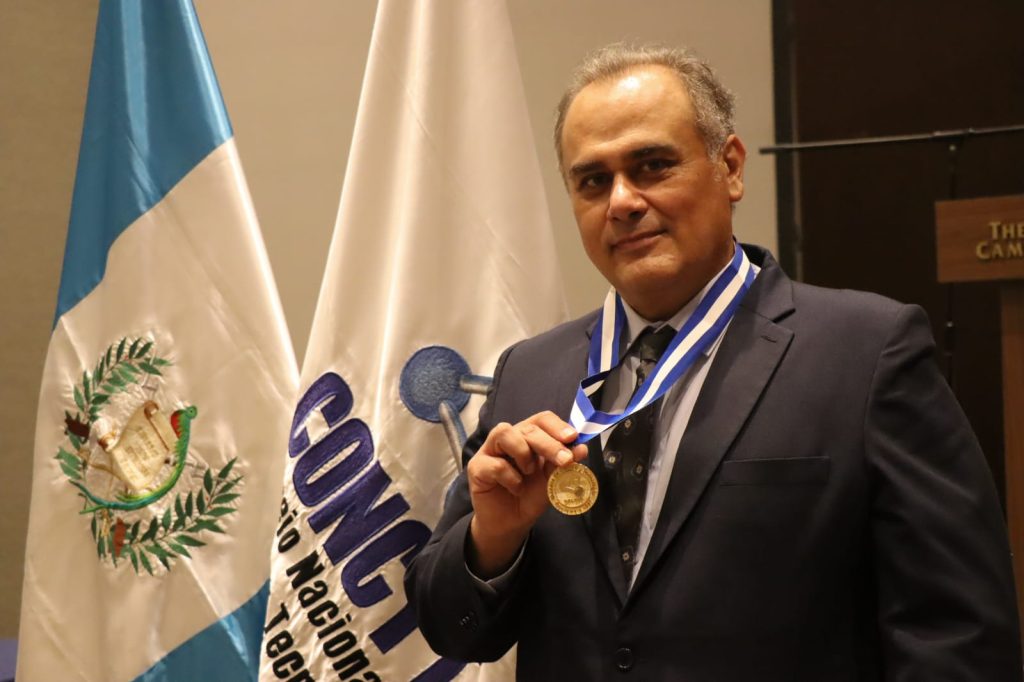Chemistry doctor Juan Francisco Pérez Sabino was awarded the highest honor for scientific work in Guatemala, the Order of Science and Technology, in recognition of his career and contributions to the development of Guatemala.
Dr. Juan Francisco Pérez Sabino is a chemist who graduated from the Faculty of Chemical Sciences and Pharmacy at the University of San Carlos de Guatemala (USA). He holds an MBA with a major in Marketing from Francisco Marroquin University, a Master’s degree in Environmental Studies from Universidad del Valle de Guatemala, and a Master’s degree in Environmental Law from the School of Legal and Environmental Sciences at the University of San Carlos. Additionally, he holds a Ph.D. in Natural Products Chemistry from the Federal University of Rio de Janeiro, Brazil.
Dr. Pérez Sabino worked in the General Directorate of Nuclear Energy at the Ministry of Energy and Minerals, from 1990 to 1997, coordinating national and international projects on environmental radioactivity in Guatemala.

Among the main findings of that period was the identification of the radioactive background in Guatemala’s land and marine environments, which is useful for assessing the impact that nuclear accidents may have on the country at the global level. Likewise, it has implemented methods for determining radioactive contamination in water, soil and sediment.
Since 1998, he has been Professor Emeritus and Head of the Instrumental Analysis Unit in the Faculty of Chemistry, Faculty of Chemical Sciences and Pharmacy.
In his career as a researcher at USAC, he was awarded the University’s Award for Academic Excellence in Research in 2020, for his participation as Principal Investigator or Associate in more than 40 research projects funded by national and international entities.
His research was developed in brief relating to the characterization of secondary metabolites of cultivated plants and Mesoamerican biodiversity as a basis for the sustainable use of native plants.
Another line of research has been the assessment of contamination with metals, radionuclides, pesticides, and contaminants originating in the country’s major lakes, which has generated useful information for decision-making on water resource management.
The doctor was satisfied with this achievement and I assure you he is touched by this appreciation.
“I feel happy and satisfied to receive an award given to the track, especially because in Guatemala it is a bit difficult to work on some research topics because there is almost no funding and one has to get the money to implement it through calls,” the professional reassured.







More Stories
“Those who go to museums but do not see an oak tree in the countryside should blush.”
Michoacana Science and Engineering Fair 2024, When the Call Ends – El Sol de Zamora
Dr. Miguel Kiwi, winner of the National Science Award, gives his opinion on nanoscience in Chile